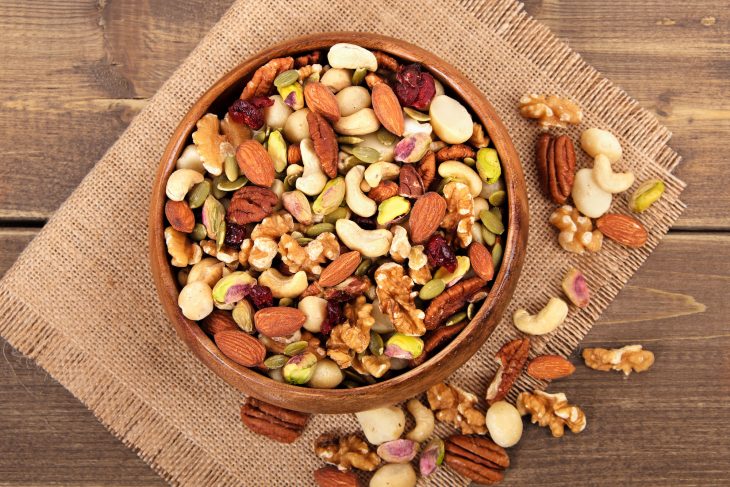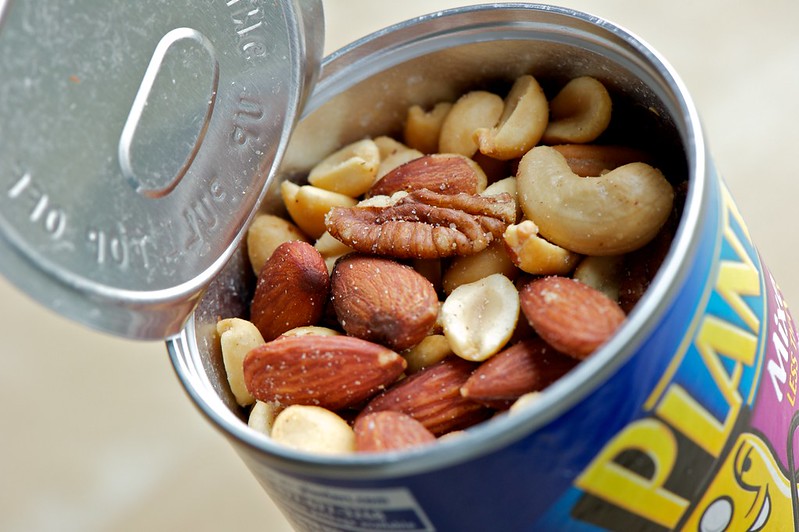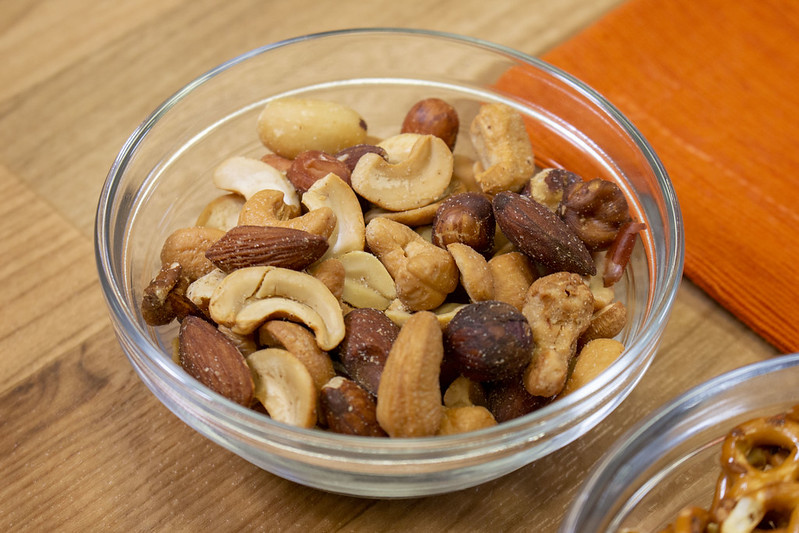
Nuts are a popular and nutritious snack enjoyed by many people worldwide. Among the various types of nuts available, mixed nuts offer a delightful combination of flavors and textures. They are a versatile and convenient snack option, suitable for a quick energy boost or as an addition to meals and desserts. In this article, we will explore the nutrition facts of mixed nuts, highlighting their health benefits and the important role they play in a balanced diet.
Composition of Mixed Nuts
Mixed nuts typically consist of a combination of different nuts, such as almonds, walnuts, cashews, pecans, and peanuts. This blend provides a diverse range of nutrients that contribute to their overall health benefits.
Protein
Mixed nuts are an excellent source of plant-based protein. They contain varying amounts of protein depending on the specific nut combination, with almonds and cashews being particularly rich in this macronutrient.
Healthy Fats
Nuts are known for their high content of healthy fats, including monounsaturated and polyunsaturated fats. These fats are beneficial for heart health and help regulate cholesterol levels.

Fiber
Mixed nuts are a good source of dietary fiber, which aids in digestion, promotes satiety, and supports healthy bowel movements.
Vitamins
Mixed nuts contain an array of essential vitamins, including vitamin E, vitamin B6, folate, and niacin. Vitamin E acts as an antioxidant, while the B vitamins contribute to energy production and brain function.
Minerals
Mixed nuts are rich in minerals such as magnesium, phosphorus, zinc, and copper. These minerals are involved in various physiological processes, including bone health, immune function, and enzyme activity.
Sodium Content
Some mixed nuts may be salted or seasoned, which can increase their sodium content. It’s advisable to choose unsalted or lightly salted varieties to minimize sodium intake, especially for individuals with hypertension or other conditions requiring a low-sodium diet.
Allergies
Nuts are a common allergen, and some individuals may have allergic reactions to specific types of nuts. It’s important to be aware of any nut allergies or sensitivities and avoid consuming mixed nuts that contain allergens.
Heart Health
The healthy fats found in mixed nuts, such as monounsaturated and polyunsaturated fats, have been shown to support heart health by reducing LDL (bad) cholesterol levels and promoting a favorable lipid profile.
Weight Management
Despite being energy-dense, studies have suggested that including moderate amounts of nuts in a balanced diet does not lead to weight gain. The combination of protein, healthy fats, and fiber in mixed nuts promotes satiety, helping to control appetite and prevent overeating.
Brain Function
The presence of vitamin E, folate, and other essential nutrients in mixed nuts may have positive effects on cognitive function and brain health. These nutrients are involved in neurotransmitter synthesis and may help protect against age-related cognitive decline.
Diabetes Management
Mixed nuts have a low glycemic index and contain healthy fats and fiber, making them a suitable snack option for individuals with diabetes. They can help regulate blood sugar levels and contribute to improved glycemic control.
Antioxidant Activity
Nuts, including those found in mixed nuts, are rich in antioxidants that help protect cells from oxidative stress caused by free radicals. The high content of vitamin E and other antioxidants in mixed nuts contributes to their potential health benefits.
Portion Control
While mixed nuts offer numerous health benefits, it’s important to be mindful of portion sizes and potential nutritional considerations. Nuts are energy-dense, meaning they contain a significant amount of calories in a small volume. To avoid excessive calorie intake, it’s recommended to consume mixed nuts in moderation and be aware of portion sizes. A standard serving size of mixed nuts is approximately 1 ounce or 28 grams, which is equivalent to a small handful. This portion provides a balance of nutrients without excessive calorie intake.

Individual Nutritional Needs
Nutritional requirements vary among individuals based on age, sex, activity level, and overall health. Consulting a healthcare professional or registered dietitian can help determine the appropriate intake of mixed nuts based on individual needs.
Conclusion
Mixed nuts are a nutritious and delicious snack option that can be enjoyed as part of a balanced diet. They provide a range of essential nutrients, including protein, healthy fats, fiber, vitamins, and minerals. Incorporating mixed nuts into your daily routine can contribute to heart health, weight management, brain function, and overall well-being. So go ahead and enjoy that tasty treat of mixed nuts!
Frequently Asked Questions (FAQs)
Can mixed nuts be included in a weight loss diet?
Yes, mixed nuts can be part of a weight loss diet when consumed in moderation. Despite their calorie content, the combination of protein, healthy fats, and fiber in mixed nuts promotes satiety, which can help control appetite and prevent overeating.
Are roasted mixed nuts as nutritious as raw nuts?
Roasting nuts can slightly alter their nutrient content but generally does not significantly impact their nutritional value. However, roasted nuts may contain added oils or seasonings, which can increase their calorie and sodium content. Choosing raw or dry-roasted nuts without added oils or excessive salt is generally recommended.
Are there any potential risks or side effects associated with consuming mixed nuts?
For individuals with nut allergies or sensitivities, consuming mixed nuts can cause allergic reactions. It’s important to be aware of any allergies and avoid nuts that may trigger a reaction. Additionally, nuts are calorie-dense, so overconsumption may contribute to weight gain. Moderation and portion control are key.
Can mixed nuts be included in a vegetarian or vegan diet?
Yes, mixed nuts are an excellent source of plant-based protein and healthy fats, making them a suitable choice for vegetarian and vegan diets. They provide essential nutrients that can complement a well-rounded plant-based eating plan.
Can mixed nuts be beneficial for individuals with diabetes?
Yes, mixed nuts can be part of a diabetes-friendly diet. Their low glycemic index, along with the presence of healthy fats and fiber, makes them a suitable snack option for individuals with diabetes. However, portion control is important to manage calorie intake. It’s recommended to consult with a healthcare professional or registered dietitian for personalized guidance on diabetes management.
Was this page helpful?
Our commitment to delivering trustworthy and engaging content is at the heart of what we do. Each fact on our site is contributed by real users like you, bringing a wealth of diverse insights and information. To ensure the highest standards of accuracy and reliability, our dedicated editors meticulously review each submission. This process guarantees that the facts we share are not only fascinating but also credible. Trust in our commitment to quality and authenticity as you explore and learn with us.
